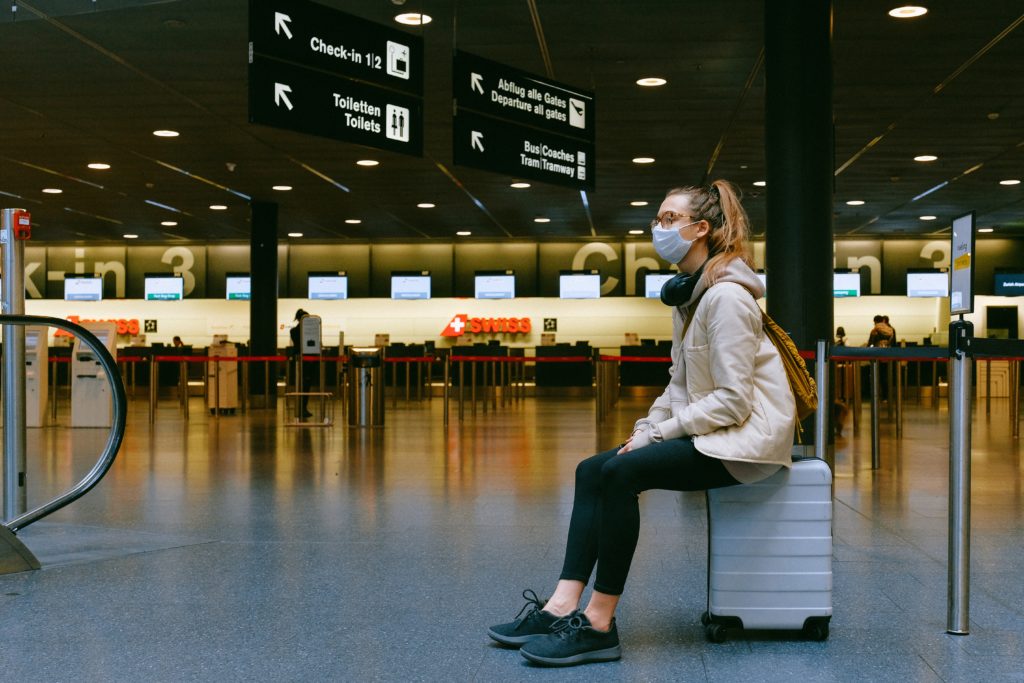Before the global pandemic of COVID-19 the travel industry was booming and many of us were saving for that beach holiday or perhaps preparing to finally visit relatives abroad. In February we had little idea that all our carefully researched plans were about to be hit with a big, red ‘cancelled’ stamp. The pre-booked flights, hotels, restaurants and shows we were looking so very forward to suddenly became bad news emails and we were left to salvage what we could from any money paid up front. As the measures taken to contain and reduce the virus’ spread have had a positive impact, lowering infection, destinations are beginning to open up again and welcome visitors.

Rather than relive the months since March spent waiting indoors we’d sooner forget, thankfully for some it’s time to discover how traveling post-lockdown is going to work. Lots of things have changed and there are new and different regulations that can vary from place to place. This effectively puts even the most seasoned traveller right back to beginner status and old habits might need to be forgotten. If you’re one of the lucky people getting ready to venture out again, this post will give you lots of tips, information and valuable insight to know before you go.
The common problem everyone considering leaving their home country will soon face is that there’s no updated rulebook to follow – things will be different and unfamiliar. Navigating this fresh set of hurdles will be more challenging than before and being unaware can lead to anything from not being allowed to board a plane or enter a restaurant to a wasted trip and lost money. Simply hopping on a plane and booking a place to stay will now present fresh pitfalls that didn’t exist before the impact of Coronavirus. Failure to be prepared is a risk that careful planning can minimise so it pays to do your research, especially for the first time out.
How is it different?
The travel and tourism industry has taken a huge hit since lockdown began and is now among the world’s most affected with an estimated loss of one billion international tourist arrivals and an 80% drop in airline flights according to a new United Nations study. Countries that are highly reliant on tourism are experiencing the worst impact with unemployment on the rise and earnings declining. No matter where you go, expect to find fewer events, activities and people in general at your destination. The threat of virus transmission is still very present and safety should be factored into any journey you make. Also, locals may have very different views on what’s considered appropriate dress and behaviour to what you’re used to.
The new packing essentials.
It goes without saying that being able to frequently disinfect both your possessions and surroundings will become the first thing you’ve got nailed down. Make sure you have adequate stocks of effective cleaning wipes and hand sanitizer both in your luggage and in your carry-on so you can clean tables, chairs and anything you need to touch frequently. Remember, liquid bottles over 100ml are still disallowed unless the airport advertises a relaxation on this rule. You’ll need to bring lots of smaller bottles with you and be prepared on long haul flights. Don’t make the mistake of running out mid-journey and being forced to buy expensive sanitizer from the airport. If you do need to restock en route, make sure what you’re buying is a suitable disinfectant – look for an alcohol level of at least 65% when choosing hand sanitizer.

Masks or face coverings will likely be compulsory on all transport and should be readily available to pick up from vending machines in larger stations and airports. You’ll be expected to also wear one in most shops so ensure you’ve read the government regulations on where they’re compulsory before you go. A good rule of thumb is that wearing one at all times when not in your residence will keep you on the right side of the law and display a welcome courtesy to your fellow travelers, too.
A new experience at the airport.
First it’s important to understand what’s now required to board an airline and cross a border so depending on where you’re traveling from, you could need more than a passport to enter. You must first ensure that the country you’re visiting is allowing entry as lockdown or stricter rules could be in effect. Many countries will now require you to provide recent documentation proving that you are not carrying COVID-19. This could mean an officially-recognised negative test result or a certificate of immunity. The definition of ‘recent’ will also vary quite dramatically and reports of just a week old are becoming more common.
When arriving at the airport, you should also expect longer waiting times especially upon return at immigration. There’s a high chance the queues will be greatly increased compared to before. If you remember just strolling through customs with nothing to declare and heading straight onto your transport, prepare to think differently. You’ll likely spend a great deal more time in the seated area waiting to be checked so ensure you have food, water and maybe a good book on you to ride out the delay. Plan ahead at all stages and leave yourself much more time than before. What hasn’t changed is that you should arrive at the airport well in advance and have all your documentation ready.

Even with the best planning, things can go wrong.
The deadly coronavirus outbreak is still active in many countries and circumstances can change at the drop of a hat. Just like the early March 2020 explosion when lots of holidaymakers were caught in lockdown and rushed to escape back home, a second outbreak is always a real possibility. Vigilance is the watchword for those looking to holiday abroad so keeping a close eye on national and local news should be second nature. A good place to start might be to install news apps on your phone or consistently check major news sites. Lots of news providers can deliver breaking information straight to your phone by notification without having to even launch the app. Getting an instant alert is your ticket to a safe and calm change of plans if something changes during the trip. Being aware of any new government advice as early as possible will give you the best chance of reacting swiftly.
Before you go, paying special attention to cancellation terms when booking your trip is a must. Lots of companies are now advertising fee-free cancellation in order to win your business so it shouldn’t be a difficult task to ensure you’re protected if the event does arise. Hotels are also taking reservations without a deposit and only requiring payment upon arrival. This is a welcome move from the industry since it really helps to ease concerns from potential customers who don’t want to risk getting locked into a purchase. Flight operators are similarly offering the option to change flight times or even destinations with no charge or a small fee as well. With such flexible terms, planning a trip is now as risk-free as it’s ever been so why not take advantage?
What about returning home?
Since re-entry to your country is likely to include new safety checks to ensure you’re not bringing COVID-19 home, expect to be tested. Even if arrivals testing isn’t in place where you are, there could be other checks to be prepared for. It’s also a good idea to learn the quarantine regulations for those returning from abroad and plan ahead of time to stay at home for at least fourteen days. If you’re already working from home this should present less of a problem, however if you do go into an office or shop for instance, then make preparations and ensure that you can self-isolate without issue. Commuting or ride-sharing is another area that you need to think about the logistics of since you might not be able to resume immediately. The smart traveller will also prepare at least a small supply of food and essentials ready for when you get back because having to do a big shop when you’re self-isolating could mean waiting ages for a delivery with nothing in the kitchen!
Additional reading on preparation for foreign travel and helping reduce the spread of Coronavirus.